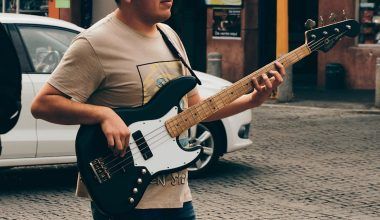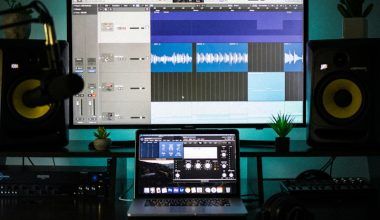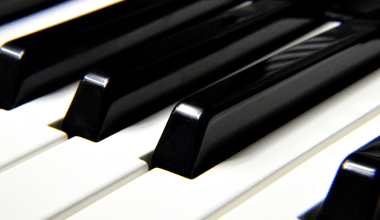What Is an EP in Music? Let’s Understand It Together!
Music is magical, isn’t it? It connects us, tells stories, and sometimes it’s just there to make us feel good. Now, if you’re someone diving into the world of music—whether as a listener or an artist—you’ve probably heard people talk about something called an EP. But what does that even mean?
Let me break it down for you in simple words. An EP in music is like a mini-album. It’s not as short as a single song, and it’s not as long as a full album. Think of it as the perfect middle ground. The term EP stands for “Extended Play,” and typically, it has around 3 to 5 songs and lasts about 15 to 30 minutes.
Still curious? Don’t worry, we’ll explore everything about EPs here—what they are, why artists release them, and how they are shaping the music industry today.
Where Did the Term EP Come From?
Let’s go back in time. In the earlier days of music, songs were released on vinyl records. These records came in different types:
- Singles: These had one or two tracks.
- EPs: These were longer than singles but shorter than albums.
- Albums: Known as LPs (Long Play), these were the big collections with lots of songs.
The name Extended Play came from the fact that it was longer than a single. Even though we’ve moved from vinyl records to digital platforms like Spotify and YouTube, the term EP in music stayed with us.
How Is an EP Different From an Album or Single?
Now that we know what an EP is, let’s see how it compares to other formats like singles and albums.
1. Singles
A single is exactly what it sounds like—just one song. Sometimes, it includes a B-side (an extra track), but it’s short and sweet. Singles are great for giving listeners a taste of what’s to come.
2. Albums
An album is a complete story. It’s longer, usually with 10 to 15 tracks, and can last for over an hour. Albums are where artists dive deep into their themes, experimenting with sounds and telling stories.
3. EPs
An EP in music sits comfortably between a single and an album. It’s short but gives enough room for the artist to explore a few ideas. It’s perfect for keeping fans engaged without the pressure of creating a full-length album.
Why Do Artists Release EPs?
You might wonder, “Why not just release singles or albums?” Well, EPs serve unique purposes. Here are some reasons why artists, especially new ones, love releasing EPs:
1. Budget-Friendly
Let’s face it—making music can be expensive. Creating an album with 10 or more songs takes a lot of time and money. An EP in music, on the other hand, is shorter and more affordable to produce.
2. Showcase Talent
For new artists, an EP is like saying, “Hey, this is me!” It’s a way to show off their style, voice, and creativity without overwhelming listeners.
3. Experimentation
Imagine you’re an artist who usually sings pop, but you want to try some rock vibes. Instead of making a whole album, you can test the waters with an EP. It’s a safe space to explore.
4. Stay Relevant
In today’s world, fans want fresh content all the time. Releasing an EP in music helps artists stay in the spotlight while they work on bigger projects.
What Does an EP Look Like?
An EP in music usually has a simple structure:
- Opening Track: This sets the mood. It’s the first impression, so it’s often the catchiest song.
- Middle Tracks: These are the heart of the EP. Artists use these songs to show their range or explore a theme.
- Closing Track: This leaves a lasting impression. It’s usually emotional or memorable.
For example, if you listen to The Weeknd’s EP “My Dear Melancholy,” you’ll notice how the songs flow together to tell a story.
EPs vs. Mixtapes: Are They the Same?
Nope, not at all! While both EPs and mixtapes are shorter than albums, they’re very different. Here’s how:
- EPs: Polished, official, and meant for commercial release. They are uploaded to streaming platforms and marketed professionally.
- Mixtapes: Raw and often given away for free. Artists might use unlicensed beats or include remixes.
Think of an EP in music as a carefully planned meal, while a mixtape is more like a fun snack experiment.
Examples of Famous EPs
Want to explore some amazing EPs? Here are a few iconic ones:
- “Collide” by Ed Sheeran: Before his massive fame, Sheeran used this EP to showcase his acoustic style.
- “Sail Out” by Jhené Aiko: This EP perfectly captured her soulful and experimental vibes.
- “1992” by Princess Nokia: A bold and raw collection of tracks that highlighted her unique voice.
How to Create Your Own EP
Are you an aspiring artist? Releasing an EP could be your next big step. Here’s how to do it:
- Plan Your Theme: Think about what you want your EP to say. Is it about love? Growth? Something fun?
- Write Your Songs: Create 3-5 tracks that fit the theme. Don’t worry if they’re not perfect yet.
- Record and Produce: Work with a producer or use tools like AI Mastering to polish your sound.
- Design Your Artwork: The cover is the first thing people see, so make it stand out.
- Distribute It: Use platforms like Deliver My Tune to get your music on Spotify, Apple Music, and more.
Remember, an EP in music is your chance to shine, so give it your best!
Why Are EPs Great for Listeners?
EPs are not just for artists—they’re amazing for listeners too! Here’s why:
- Quick and Fun: You can enjoy an EP during a short drive or while relaxing at home.
- Discover New Artists: EPs are a great way to explore an artist’s style without committing to a full album.
- Diverse Tracks: Since EPs are shorter, each song is usually unique and packed with the artist’s best effort.
Conclusion: Why You Should Care About EPs
So, now you know all about EPs in music! They’re more than just a collection of songs—they’re a way for artists to connect with their audience, experiment with their sound, and make their mark.
Whether you’re an artist looking to release your first project or a fan eager to discover new music, EPs are a beautiful part of the music journey.
So next time you hear the term EP, you’ll know exactly what it means and why it matters. Keep listening, keep exploring, and who knows? Maybe your favorite artist’s next EP will become your all-time favorite!
Related Articles:
For further reading, explore these related articles:
- The Ultimate Guide to the Best Free Music Distribution Services for Independent Artists
- The Ultimate Guide to Digital Music Distribution for Independent Musicians
- Exploring the Best Music Distribution Platforms for Independent Artists
For additional resources on music marketing and distribution, visit Deliver My Tune.






